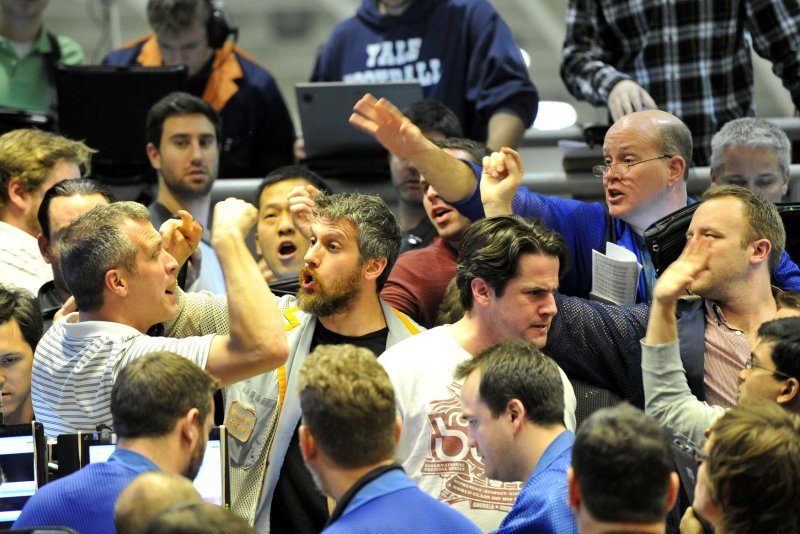Market jitters ahead of President Donald Trump's announcement on the Iranian nuclear deal sent oil prices lower in early Tuesday trading. File Photo by Brian Kersey/UPI |
License Photo
May 8 (UPI) -- A Tuesday afternoon announcement on the Iranian nuclear deal by President Trump left oil prices on a downturn as investors waited in the wings.
U.S. President Donald Trump made a surprise declaration Monday afternoon that a decision on the Iranian nuclear deal was planned for 2 p.m. EDT on Tuesday from the White House. With British Foreign Secretary Boris Johnson making a case for the agreement in Washington, Trump had until Saturday to make a decision and his announcement left investors skittish and sent crude oil prices lower in Monday afternoon trading.
Joe McMonigle, a senior energy analyst at Hedgeye Risk Management, told UPI the surprise drop in crude oil prices was a direct response to Trump's early announcement.
"Our view is unchanged: Trump will reimpose oil sanctions," he said Tuesday. "The only questions remaining are about timing and implementation."
After a strong surge in Monday morning trading, the price for Brent crude oil was down 0.54 percent as of 9:15 a.m. EDT to $75.78 per barrel. West Texas Intermediate, the U.S. benchmark for the price of oil, was down 0.88 percent to $70.11 per barrel.
Crude oil prices were down more than 1 percent in overnight trading.
Trump leaving the deal could undermine a 2015 agreement supported by allies of the United States in Europe, as well as Russia and China. That agreement lets Iranian oil flow through the market at a time when extra supply is at a premium.
Speaking to CNN Money, Mohammad Barkindo, the secretary general of the Organization of Petroleum Exporting Countries, said extraordinary moves to limit global oil supplies would be bad for the global economy.
"Whatever extraneous factor that affects supply or demand, will no doubt send the market into disequilibrium, which is not in the interest of producers, or the interest of consumers," he said.
There could be backstops against any major market disruption, however, as European allies to the United States have signaled they want to keep the deal in play. In late April, French President Emmanuel Macron told his Iranian counterpart, Hassan Rouhani, that his wish was "that the achievements of the 2015 negotiations be preserved."
While the Iranian decision will certainly draw most of the market's attention for the day, investors will be waiting for data on U.S. crude oil inventories to get a sense of the cushion at play. A gain in U.S. crude oil inventories could give the market some breathing room in the face of renewed Iranian oil sanctions.
Commodity pricing group S&P Global Platts, however, said it was anticipating a 500,000 barrel draw in U.S. commercial crude oil levels and was seeing the trend line supportive of higher crude oil prices.
"Coupled with the ongoing plunge in Venezuelan production, the price environment has turned decidedly bullish, despite headwinds like dollar strength and soaring U.S. production," Platts Oil Futures Editor Geoffrey Craig said in an emailed market report.















